|
Organized By |
|
Key Sponsor |
|
 |
March
12, Mumbai |

|
|
 |
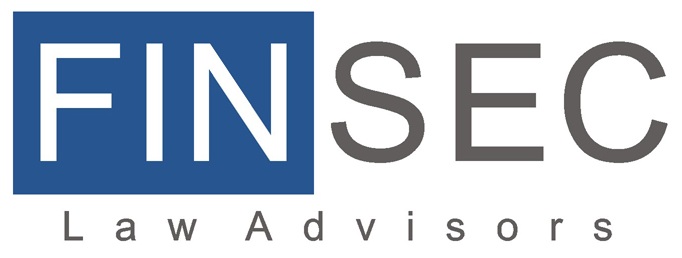
|
Knowledge
Partners |

|
|
 |
|
Associate Sponsor |
|
 |
|
|
|
 |
|
How Long will the
�Acche Din� Last?
The
inaugural session featured a vigorous debate on whether
the current euphoria in public and private markets is
founded on solid factors versus being just another
cyclical bubble.
The stage for the session was set with
a presentation by Sridhar Venkiteswaran, Director,
Avalon Consulting on
Flashback 2014: Beginnings of 'Achche Din'?

The panel was
chaired by Raj Nair,
Chairman, Avalon Consulting. Sound Bites from
the panelists:
Mahesh Murthy,
Managing Partner, Seedfund
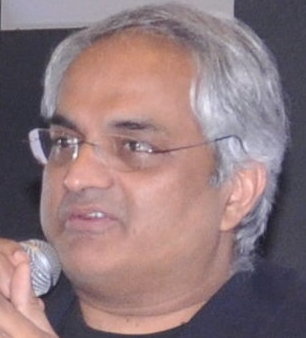
It's a
great time to raise money, but it's a sucky time to be
investing. LPs want you to chase E-Commerce where the
valuations are ridiculous. And the market is rewarding
the cash inefficient companies.
In E-Commerce, the profits have all been sucked out. A)
they are discounting heavily and B) they are spending
heavily to say that they are discounting. So, it's a
lose-lose situation. The most successful companies in
the E-Commerce boom are Times of India and Star TV -
because they are making a lot of revenues (thanks to
advertising spend by E-Commerce companies). At some
point, this will stop and economic sense will come back.
The recent Housing.com - Sequoia episode is symptomatic
of how much the pendulum has swung in the investor -
entrepreneur ecosystem. Just a few years back, the
investor was the absolute king. Hopefully, the pendulum
will settle somewhere in the middle as far as this
equation is concerned.
Indian companies buy overseas startups; overseas
companies buy Indian startups. But very rarely do Indian
companies buy Indian startups. It's a "not invented
here" syndrome. Because the "copy pasted" from the West
PE/VC funding model require exits in 5-8 years and the
best Indian companies - like Naukri or Justdial -
require 11-18 years to mature to provide good exits, we
are thrusting an artificial pressure on our
entrepreneurs. The best way out, though not natural, is
to encourage a culture of serial entrepreneurship, where
the entrepreneur goes on to build a newer venture after
exiting the first.
V. Anantha
Nageswaran, Expert on Global Financial Markets
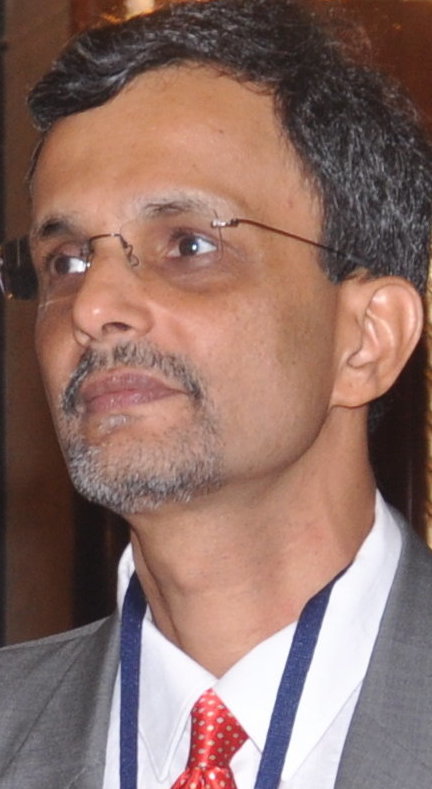 With
90% of the world experiencing negative interest rates,
we are clearly living through abnormal times. To expect
that this will somehow not have a consequence is to live
in a La La land. With
90% of the world experiencing negative interest rates,
we are clearly living through abnormal times. To expect
that this will somehow not have a consequence is to live
in a La La land.
If the US stock market corrects in 2015 - whether due to
Fed action or something else - past experience has shown
that markets around the world will fall as well. The
correlation is almost always 1 - whether we have Achhe
Din domestically or not. So, it's important for
investors to keep their feet and ears to the ground.
You cannot ignore the 800 pound gorilla in the room -
which is the massive Non Performing Assets that the
banks are sitting on. The Indian corporate sector is one
of the most highly leveraged private sectors in the
world and especially among key emerging markets. Indian
companies have also borrowed heavily in foreign currency
markets - which is what caused problems in 2008 and
2013.
Vish Narain,
Country Head, TPG Growth India
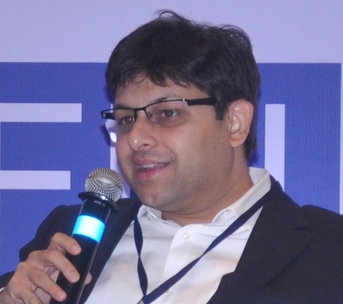 From
the complete negativity towards India among
international investors, this swing of the pendulum
towards euphoria is not only necessary, but essential. From
the complete negativity towards India among
international investors, this swing of the pendulum
towards euphoria is not only necessary, but essential.
The re-pricing of assets - including Real Estate where
prices in the top cities here are comparable to global
levels - has already happened. So, we can't expect asset
inflation to help with too much further wealth creation.
The hard work is ahead of us - growth will have to come
from the real economy kicking in. The new government -
with its focus on Make in India, jobs growth and a
strong Captain at its helm - gives scope for cautious
optimism.
Rajesh Raju,
Managing Director, Kalaari Capital
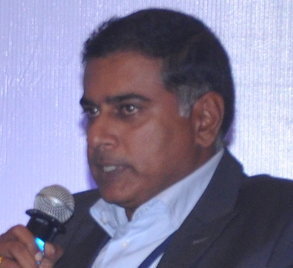 The
euphoria can be a double edge sword. The global numbers
in the technology space - whether the kind of capital
deployed or the valuations - are eerily similar to the
dotcom boom-and-bust years. Entrepreneurs will do well
to plan for a crash, raise capital when they still can
and preserve it. Most of the opportunistic investors -
who are the most active players in the market today -
will be the first to disappear. And even the core VC
investors will turn cautious. The
euphoria can be a double edge sword. The global numbers
in the technology space - whether the kind of capital
deployed or the valuations - are eerily similar to the
dotcom boom-and-bust years. Entrepreneurs will do well
to plan for a crash, raise capital when they still can
and preserve it. Most of the opportunistic investors -
who are the most active players in the market today -
will be the first to disappear. And even the core VC
investors will turn cautious.
The
leaders - like Flipkart, Snapdeal, etc - will be able to
raise capital even during bad times. They might even
have an advantage because (a crash will cause) some of
the fringe players to disappear.
Unlike in the late 1990s, a lot of the bubble this time
around is getting built up in the private markets. So
the shock of a correction might not be felt as much and
will not stem the flow of funding to fundamentally
strong companies.
The mindset of new age entrepreneurs is different when
it comes to tapping public markets and to diluting their
stake to raise capital. This will help create a better
environment for PE/VC investors to exit profitably in
the years ahead.

|
View Event Videos on |
 |
View More Event Pics on |
 |
back to top |
|
 |
|
Keynote Address by Rakesh Malhotra, Founder, SAR Group

After
divesting a 74% stake in his first entrepreneurial
venture - Luminous Power Technologies - to French major
Schneider Electric for INR 1,400 crore in 2011, Mr.
Rakesh Malhotra has expanded the SAR Group across
sectors like Water Purification, Energy Storage, Clean
Energy, Telecom and Electricals. The Group�s investment
arm, Ncubate Capital, partners with PE/VC firms to
invest capital across multiple entrepreneurial ventures.
As part of his address, Mr. Malhotra shared facets of
the Luminous journey, experience with
private equity and the new initiatives of the SAR
Group. Some Highlights:
On the Schneider Transaction
Unusually,
for a MNC buyout, we mutually agreed that we (the Indian
promoters of Luminous) will retain a 26% stake. The
business has grown well over the last three years and we
continue to remain invested and engaged at a strategic
level. This arrangement has ensured continuity - so much
so that it has become a case study for MNC buyouts of
Indian companies at leading international Business
Schools.
Experience in turning investor
Post the Schneider transaction, we dabbled in a few
different things - including in investing directly in
some growth stage companies. We did not however figure
out for a while that our DNA as entrepreneurs, will
remain that of entrepreneurs and that, being an
investor, requires a different DNA. Putting your hands
on the wheel and wanting the intangible payoffs out of
an investment - having the fun of building a business,
of excitement in working with people, etc - these are
not things that you get with growth stage businesses,
since things are kind of set in such businesses and
their promoters do not wanting you meddling in the
affairs of the company just because you have invested
some capital.
So, we
decided to have twin focus vis-a-vis investing in
private companies: we moved a part our (Family Office)
team to focus on investing into external PE/VC funds to
get exposure to the broader private equity asset class
and to internally concentrate on getting involved with
fewer businesses especially where there is a clear
strategic fit and where they need our active
involvement. We are also setting up an accelerator
focused on energy storage and its applications and
consumer brands and appliances.
Family Office vs PE/VC Money
A Family Office can bring an entrepreneurial flavour
to specific business that they invest in - but it may
not work for all kinds of companies. For instance, we
cannot add any great value to a tech startup (and such
entrepreneurs would be much better off dealing with
regular VC funds). But to an entrepreneur in say the
tech appliances space, we would be able to present so
many different dimensions - based on our sheer
experience in the sector - in a way no financial
investor would be able to.
Sachin Tendulkar
On request,
Mr. Malhotra also shared some great anecdotes on his
interactions with cricketing legend Sachin Tendulkar
whom he had signed up as a brand ambassador for both
Luminous and LivPure. Including how the values that
Brand Sachin represent - Trust, Durability and
Reliability - provided a dream fit for these ventures. So much that Tendulkar is now a stakeholder in LivPure
(and works closely with its Foundation).

|
View Event Videos on |
 |
View More Event Pics on |
 |
back to top |
|
 |
|
Lessons from the Cycles: Making PE/VC in India
Sustainable

A discussion on the
lessons learnt from the latest �boom-and-bust cycles� to
distil a list of �Dos and Don�ts� - for both PE/VC
investors and Entrepreneurs. The Speakers Included:
- Arvind Mathur, President, IVCA
- Prakash Nene, Managing Director, Multiples PE
- Sesh AV, Managing Director, Basiz Fund Services
(Session Chair)
- Nilesh Mehta, Managing Partner, Access PE
- Chinnu Senthilkumar, Partner, Exfinity Ventures
- Hetal Gandhi, Managing Director, Tano Capital

|
View Event Videos on |
 |
View More Event Pics on |
 |
back to top |
|
 |
Family Offices & Private Equity
A highly welcome development in the private company
funding ecosystem in recent years has been successful
first generation entrepreneurs and traditional business
families looking to make direct investments � either
directly or via PE/VC funds. This session, featuring
speakers from Family Offices and PE/VC Funds, discussed
issues such as:
- How do Family
Offices view the world of private company investments?
- What are strategic
objectives / benefits of investing directly (vs via
PE/VC funds)?
- From PE/VC funds, how do Family Offices compare (in terms
of working relationship) with other traditional
sources of capital?
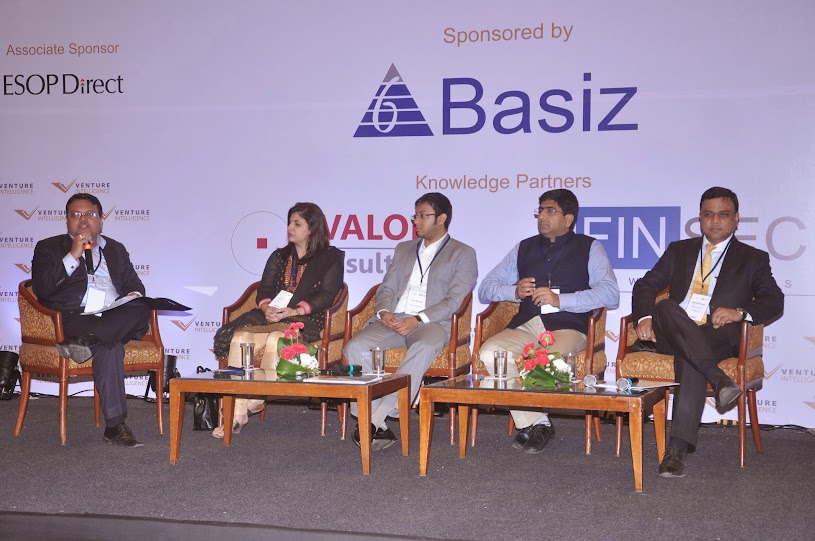
The Speakers Included:
- Sumit Dhanuka,
Senior Investment Manager, NCubate Capital
- Benaifer
Malandkar, CIO, RAAY Global, Patni Family Office
- Salil Musale,
Executive Director, Astarc Ventures
- Srikrishna
Ramamoorthy, Partner, Unitus Seed Fund India
- Navin Kumar,
Executive Director, Milestone Capital

|
View Event Videos on |
 |
View More Event Pics on |
 |
back to top |
|
 |
|
�It�s Happening in India� Success Stories of PE/VC
Funding, Impact & Exit
The session provided a
flavour of the various issues entrepreneurs should be
prepared for as they plan the financing, growth and exit
strategies for their enterprises.
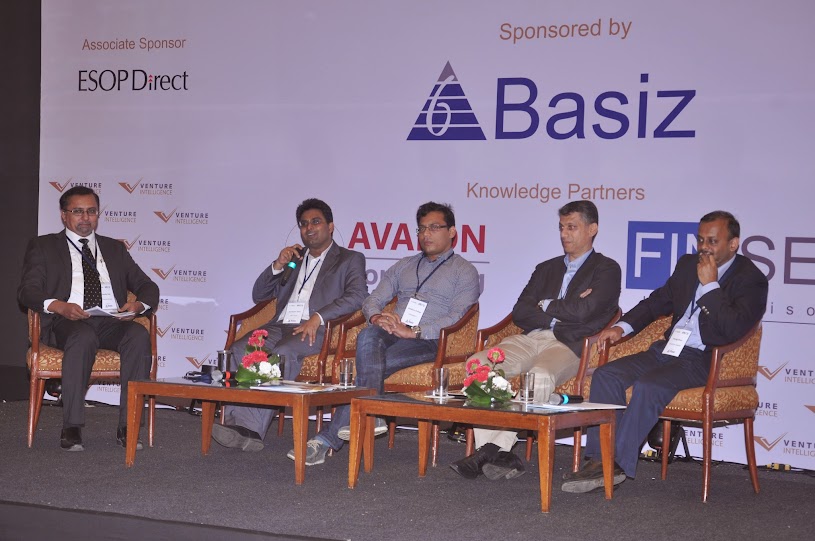
Speakers Included:
- Chandu Nair,
Member, Chennai Angels
- Ashwani Gaur,
Founder, Oku Tech & Playcez
- Krishna Kumar,
Founder & CEO, Simplilearn
- N.K. Dilip,
Partner, Tatva Legal
- Parag Dhol,
Managing Director, Inventus Capital
Sound Bites from
the panelists:
Chandu Nair on how investor behaviour has changed
(since the time he had raised capital for his previous
venture, Scope eKnowledge, in the 1990s):
The
ecosystem is much more mature and there is
specialization - in terms of Accelerators, Angel
Investors, Seed Funds, etc. And entrepreneurs today have
a generation of previous entrepreneurs - who have been
through at least one cycle - to learn from. There is
also not much disadvantage vis-a-vis age - investors are
not necessarily running behind only younger
entrepreneurs.
And what's not changed:
Herd mentality. "Everyone is doing tech deals, so I will
also do tech only. Everybody is doing B2C, so I'm also
in B2C".
Ashwani Gaur on Accelerators vs Angel Investors:
As a first time entrepreneur, especially straight out of
college, friends and family funding is not readily available. At
this stage, Accelerators are a good option.
In India,
angel investors seem to come with their own agendas. At
the very early stage, when you might have to pivot your
business model a couple of times, to have someone
breathe down your neck might not be such a good idea.
Accelerators are however professionally run and they
give you sufficient flexibility and exposure to attract
the next round investors.
& on Why Entrepreneurs Should Avoid Agreeing to an
All Stock Acquisition:
You are riding in a bigger ship and you are
buying into some else's vision. If the vision does not
match, it could be a disaster - since if the business
does not do well, you have not made any money upfront
and you are also not going to make any money going
forward.
Plain talking by Krishna Kumar - the
Education industry entrepreneur whom no one seems to
have told that Education is no longer in fashion among
investors. (In Jan 2015, Simplilearn closed a
$15-M third round led by Mayfield, after earlier raising
capital from Helion Ventures and Kalaari Capital.):
The way to scale is to hire guys better than yourself.
Between hiring good guys and raising money, I would say
the former is more difficult. That's the main reason we
raised out first VC round. (Raising capital from name
brand investors gets a lot of media attention and adds
credibility to your business. And this helps attract
talent at the senior level.)
Once you raise VC money, you get into a loop of
constantly raising newer rounds. While on the one hand,
as your business scales, your vision becomes larger and
you look at things like acquisitions to grow faster,
another aspect is that, in the absence of an actual
exit, existing investors feel good when you raise a
follow-on round at a higher valuation. As an
Entrepreneur, you need to be prepared for this.
After the first round, every subsequent
investment has been owing to inbound interest. Investors
came to me and said Education is a sector we think will
grow and are you prepared to raise money? And we said
yes. It's not good say no, right?
N.K.Dilip on "standard" investor term sheets:
There is nothing called a standard term sheet,
but only a general perception about what is acceptable
and not acceptable. It is important for entrepreneurs to
realize that that the term sheet sets the commercials - the
investor might, based on due diligence, re-negotiate to
set the commercials lower. But it will never become higher.
Parag Dhol on E-Commerce, Hedge Funds & Redbus:
It's become so easy for some of the B2C Internet
led and E-commerce business models to raise $20-30
million (going up to $100 million and in some cases even
$500 million), while entrepreneurs in other sectors are
finding it as hard as ever to raise money that it is
causing a lot of heart burn.
The transactions of recent months, where investors who
used to talk to only companies that are EBITDA positive,
are now writing cheques to companies that have hardly
any revenues, is going to lead to lot of pain. A
strategic acquirer paying out real money to acquire a
company would be real test of whether the valuations in
the earlier rounds were justified or not. In that sense,
Twitter's recent acquisition of ZipDial and Google's
reported talks with InMobi, etc. are a good sign. But
since significantly large deals through that route are
still yet to happen, the Jury is still out.
The Redbus story, including how the company leveraged
the Internet to build and operate a trusted marketplace
(between bus operators and travelers) in a very capital
efficient manner - the company had raised a total of
about $9 million - will be a case study (for other
starups to learn from) for a long time.

|
View Event Videos on |
 |
View More Event Pics on |
 |
back to top |
APEX'15 Company Showcase
This online publication contains
a listing of companies seeking PE/VC funding, including
those that participated at the APEX'15 Summit. It
features companies spanning
the entire gamut of sectors - from Online Services & E-commerce to
Real Estate & Infra - with investment requirements
ranging from Rs.0.5 crore to Rs.360 crore.
The Company Showcase can be downloaded from
https://www.ventureintelligence.com/showcase.htm |
|
 |
|
Bronze Sponsor
 |
|
 |
|
Supporting
Partners
|
|
|
Copyright � TSJ Media Pvt Ltd, All rights reserved. |
back to top |
|
 |
|